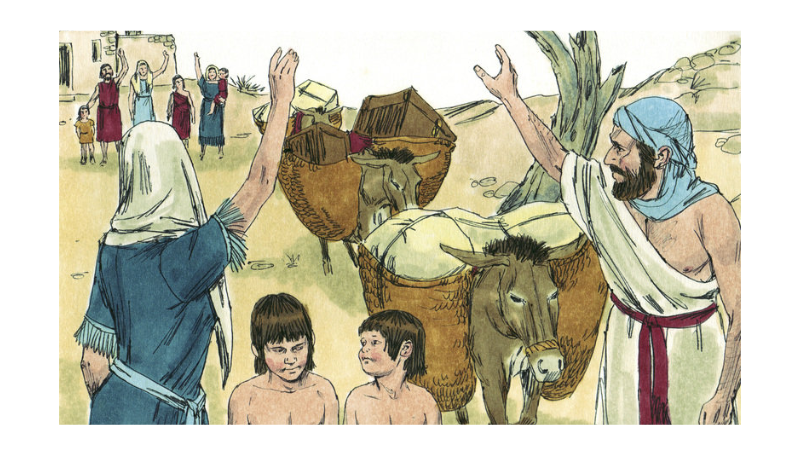Sarah Rindner
Book of Books, June 3, 2024
The upcoming holiday of Shavuot evokes the receiving of the Torah on Har Sinai, flowers and greenery, and of course delicious dairy food. It is also the holiday of “malkhut,” or kingship, when we read the book of Ruth, which recounts the backstory behind the emergence of the royal house of David. Shavuot is the culmination of 49 days of counting the Omer, a seasonal agricultural offering in the Temple wherein each week of seven weeks is categorized by one of the Kabbalistic “sefirot”. The final one of these sefirot is Malkhut, described by the Zohar as “having nothing of her own.” Notwithstanding its connotations of royalty, Malkhut is understood to be a void that receives all of the preceding weeks’ sefirot. While Passover celebrates the miracle of liberation from Egypt, Shavuot emphasizes groundedness in the Land of Israel. In contrast to hastily baked matzot, Shavuot features the wheat harvest and the bread and first fruits (“bikkurim”) offerings in the Temple. Its theme of malkhut prompts us to think about the nature of leadership in our own time – that which we have and that which we lack. It prompts us to question what true kingship might look like in a modern era.
In the early days after October 7th, for many of us here in Israel, our feelings of shock, horror and grief were also accompanied by a sense of having been set adrift. With greater urgency than ever, we asked- the question of who, if anyone, was steering our national ship. One didn’t have to be a member of the anti-Bibi camp to feel that our leadership had failed us. Moreover, it wasn’t clear who, if anyone, might be able to lead us out of this morass. A friend commented that “this was the first time in my life that I realized we had a problem that even a group of the most brilliant Jews in the world together in a room couldn’t solve.” In the months since the massacre, these questions have in many ways been exacerbated, as Israel finds itself mired in an even deeper set of conflicts – balancing international pressure with achieving its military goals in Gaza and of course the question of how best to go about retrieving the hostages, to the extent that our efforts may yield any fruits at all. It’s not that these issues don’t have solutions per se, it’s that the leaders needed to implement these solutions, who can rally their nation, unify factions, leverage diplomatic relationships, inspire trust and move forward with confidence, often seem to be missing from the room.
Counterintuitively, as our politicians continue to bicker and the international picture looks bleaker by the day, we find ourselves surrounded by heroes. It wasn’t only the countless tales of heroism from the day itself: the brothers Elhanan Hy”d and Menahem Kalmanson who jumped into their cars on October 7 and drove from the settlement of Otniel to battle terrorists and evacuate dozens of survivors of kibbutz border communities. Aner Shapira Hy”d, who caught and threw back seven explosive grenades while hiding in a shelter near Re’im with two dozen others until he was killed by the eighth. Or Amit Mann Hy”d, the paramedic with an angelic voice who was killed treating patients in the makeshift clinic she refused to abandon in Be’eri on that day. In December of this year, Hanukkah time, the singer Ruchama ben Yosef released a wonderful song called “VaYehi Or,” “Let There be Light,” where she addresses the theological implications of October 7th for a person of faith: “a great miracle did not occur, we did not find the jar of oil.” Instead of discovering a miracle from above, ben Yosef sings, “we discovered ourselves.” …SOURCE


